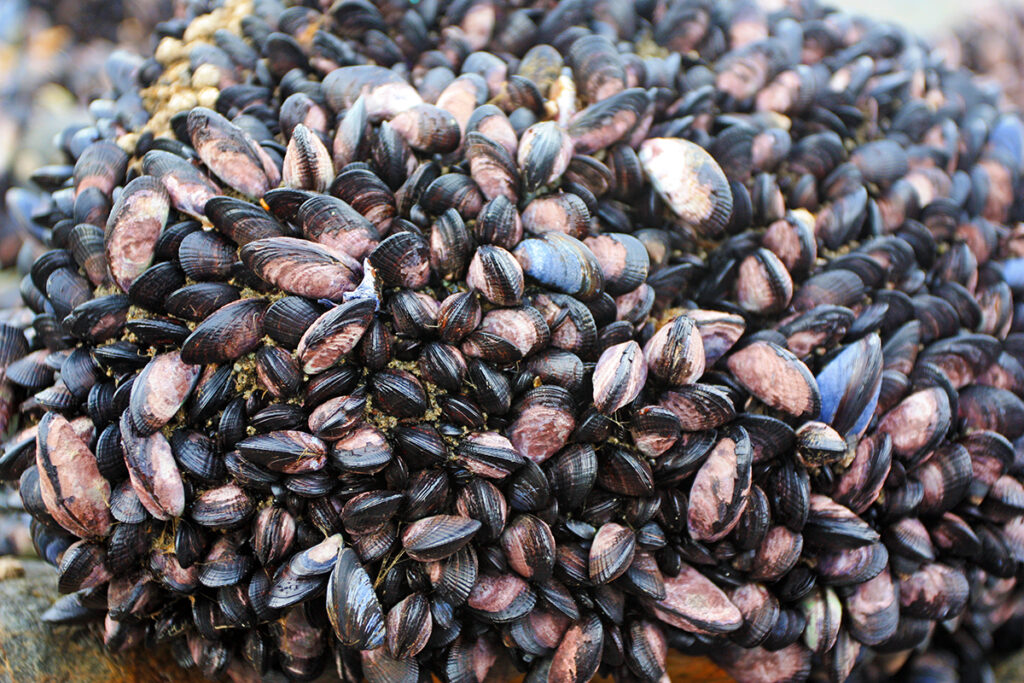Invasive quagga and zebra mussels threaten Washington’s waters and our way of life, which makes the recent interception of two tugboats infested with these aquatic invasives near Liberty Lake such a fortunate discovery. The tugboats and their hitchhikers were snagged at a Washington Department of Fish and Wildlife (WDFW) watercraft check station near Liberty Lake on Jan. 7. It wasn’t just a few mussels either, reports WDFW. Agency staff removed 21 gallons of mussels from one of the boats, which were previously anchored in Lake Michigan. The inspection find was the largest volume of invasive mussels removed from a single vessel entering Washington in the last seven years, says WDFW. Had the inspection station not been open or short staffed, the mussels could have potentially ended up in Washington waters, where their spread may have damaged many opportunities for water recreation in the area.
“Invasive mussel introduction and establishment is an imminent threat to our state,” says Justin Bush, WDFW’s aquatic invasive species division manager, in an agency blog about the situation. If these invasives were to become established, mitigation and management costs to vital infrastructure, like drinking water and hydropower, are estimated to cost hundreds of millions annually, he says. “In the last five years, we’ve intercepted 127 invasive mussel infested boats. If just one made it to our waters, we would be addressing the consequences of invasive species introduction today.”

Invasive mussels and other non-native aquatic species can spread through movement of gear and both motorized and non-motorized watercraft, notes the agency. WDFW says one of the best ways to prevent them from establishing in Washington’s waters is to always clean, drain, and dry your gear, which includes paddles, waders, shoes, life vests, buckets, trailers, and anything else that’s been in the water. Boaters and paddlers should always pull the bilge plug when transporting watercraft and stop at mandatory check stations.
Environmental threats like increased water pollution and habitat destruction also pose catastrophic threats to threatened and endangered species like salmon and steelhead, WDFW warns. Those impacts can then snowball, negatively impacting populations like resident killer whales that rely on salmon as well as commercial and sport fishing that depend on healthy fisheries.
It’s no accident that invasive mussels haven’t established in Washington. Decades of prevention efforts throughout the state and nationally in the U.S. and Canada have helped slow the westward spread. Detections of invasive species on watercraft and other aquatic equipment at watercraft inspections stations are a key part of preventing infestation.
Most western states that operate watercraft inspection stations during the colder months do so with reduced staff and hours, making Spokane one of the few watercraft inspection stations open and fully staffed this time of year. The station is able to operate at normal capacity thanks in part to $3.62 million in additional funding from the Washington state Legislature and federal partners.













